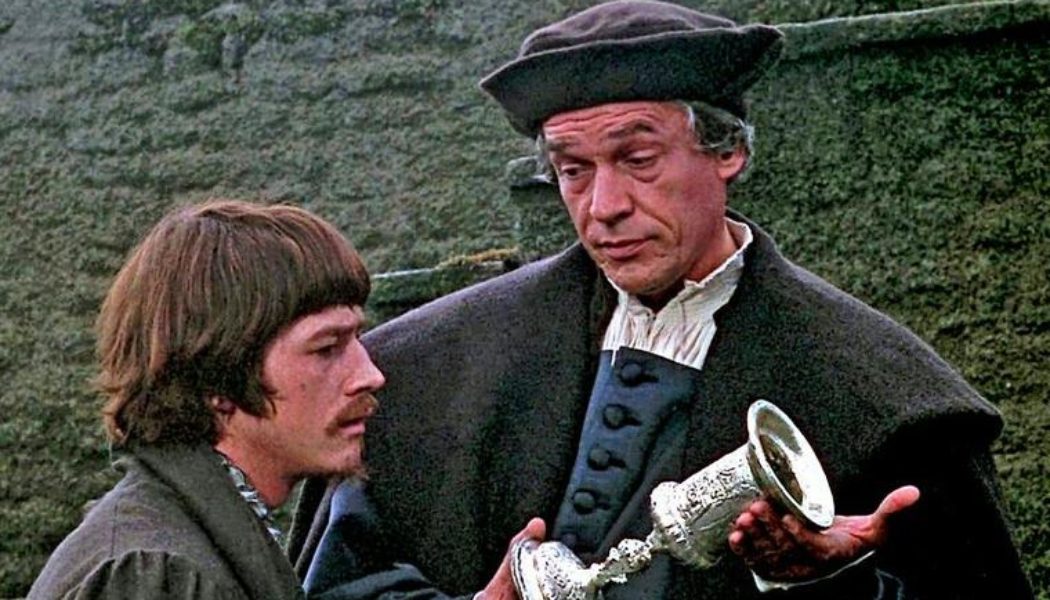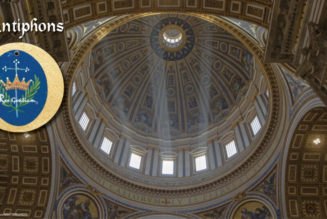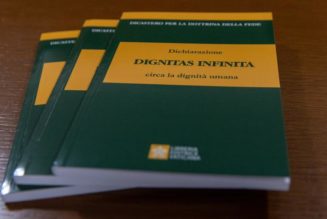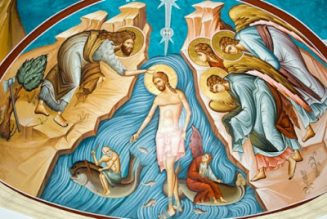
“Employ me,” Richard Rich begs Sir Thomas More in a powerful scene from the film A Man for All Seasons, the 1966 Oscar winner for “Best Picture.” Many young people have said the same, especially after four years of college. Richard, a neighbor of Sir Thomas, was on break from Cambridge and had recently been introduced to the thought of Machiavelli, advising to do whatever it takes to get ahead. Richard doesn’t want to go back to school and asks Thomas More to give him a job out of friendship. As a friend, Thomas gives him excellent advice: “Be a teacher.”
This is not what Rich wants to hear. To prove his point, Thomas offers him a cup of Italian silver, given to him as a bribe.
“Take it. No joke.”
“Thank you.”
“What will you do with it?”
“Sell it.”
“And buy what?”
“A decent gown.”
“But Richard, that’s a little bribe. At court they offer you all sorts of things, home, manor houses, coats of arms. A man should go where he won’t be tempted. Why not be a teacher? You’d be a fine teacher. Perhaps a great one.”
“If I was, who would know it?”
“You. Your pupils. Your friends. God. Not a bad public, that. And a quiet life.”
“You say that. You come from talking with the cardinal.”
“Yes, talking with the cardinal. It’s eating your heart out, isn’t it? The high affairs of state.”
Thomas tries to show him that Machiavelli is wrong — that the goal is not simply getting ahead or making it financially. In fact, succeeding in that way might cost you in the end. Ironically, those high affairs of state will, in fact, cost Sir Thomas his life.
In Robert Bolt’s original stage version of A Man for All Seasons, Thomas says that high office “was inflicted on me,” and his advice for the young Richard, who will one day become the chancellor of England like More, may have pointed to his own desire for a quiet life of study, friendship and peace.
Right now, we are experiencing a serious teacher shortage. Many young people may be thinking like Richard, asking what the point of teaching is when there are so many better options. It certainly is true that being a teacher will not prove lucrative and in fact requires a lot of hard work. Yet it is important work — rewarding work, at that.
I often wonder why we generally say that we value education highly and yet are not willing to reward it. What has a greater impact on the future of our country — trading stocks on Wall Street or teaching second grade at St. Mary’s parochial school? You often hear of a teacher changing a student’s life. Imagine saying that of your stockbroker.
Teaching is not the best path for anyone with Machiavellian intentions of getting ahead. It is a vocation — one imbued with spiritual significance. Jesus told his disciples to make disciples, a word that means “students,” and to teach them (see Matthew 28). Education stands at the center of the Church’s mission to form followers of Jesus Christ. Nonetheless, we have reduced education to utilitarian means. We expect teachers to sacrifice their own career potential in order to help their students prepare for college and find high-paying jobs. No wonder we are looking for more teachers! Perhaps we are missing the real purpose of education.
Why do we spend so much time in school? Is it simply to pick up useful skills for the future? Well, we all have heard, or possibly even repeated, the common complaint of students — “I will never use this again.”
Education is not simply a matter of skills, because human beings have to learn how to be human. Unlike animals, who just know what to do through instinct, as free rational beings, we have to shape our minds and freedom, discovering what is good and dedicating our lives to realizing it. Work is one part of our lives, although education more broadly helps students to learn how to think, what they should value, how to form their character and how to discover their own vocation.
Looked at from that perspective, the vocation of teaching takes on much more significance. If we really understand education in this way, we can see why it is worth the sacrifice and should be regarded as a more important profession than almost anything else. It is an investment in the very souls of our children, and the future of the Church and our society depends fundamentally on its success.
Teachers may envy their friends in business — friends who do not have the same concerns about covering bills and getting their kids through Catholic school. It can be easy to think, “Did I choose the wrong path?” The practical difficulties, however, can be offset by the joys of leisure (skole in Greek, the root of the word “school”). The teaching vocation embraces leisure by seeking the deepest truths and goods of human life and sharing them with students. Of course, this life devoted to leisure is still full of the “busyness” of lesson plans and grading, though it is also a privilege to be able to lead students to what matters most. This leisure — a life dedicated to truth — reflects a higher road, a choice for “the better part” as a kind of spiritual investment.
Eventually Richard Rich “makes it,” turning to another Thomas for employment, Thomas Cromwell, playing a key role in his schemes to destroy the Catholic Church in England. After Rich agrees to perjure himself to convict his former friend, More still has one last chance to question him:
“That’s a chain of office you’re wearing. May I see it? The Red Dragon. What’s this?”
“Sir Richard is appointed attorney general for Wales.”
“For Wales? Why Richard, it profits a man nothing to give his soul for the whole world. But for Wales?”
Sir Thomas points us to the ultimate stakes of our vocation, which we should view sub specie aeternitatis, “under the aspect of eternity.” At the moment of death, when money no longer matters, when all of our comforts and pleasures are long gone, what will we be happy remembering about our lives?
Now is the time to invest in what is most important and what will last. Sacrificing a materially rewarding career requires faith, believing that the eternal benefits will outweigh the competing offers of this world.
The Lord hopes that we will respond to his call. And we, for our part, want to hear him say, “Well done, good and faithful servant” (Matthew 25:21). He has made an investment in us and wants a return, making good use of the gift of our life and the talents we have received to spread his kingdom.
In our individualistic culture, we don’t tend to think about work in terms of this kind of stewardship. Only in heaven can we truly see, with the audience of God and our friends, the fruits brought forth in the souls of our students.
With this great goal in mind, it is much harder to turn down St. Thomas More’s excellent advice: “Why not be a teacher?”
Join Our Telegram Group : Salvation & Prosperity








